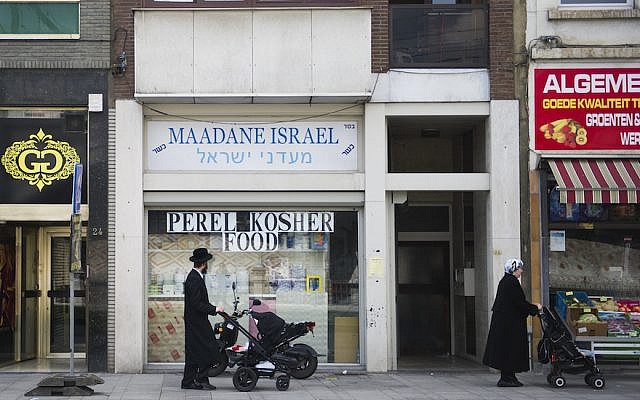
Kosher slaughter ends in northern Belgium, threatening supplies to Europe
Following ruling last year, animals must be stunned before they are killed, a measure that precludes traditional Jewish butchering method
As the year 2018 came to a close Monday, it brought with it an end to kosher slaughter in the northern Flanders region of Belgium, home to half of the country’s Jewish population and a major supplier of meat for European Jewish communities.
In June 2017, the parliament in the Flemish region, one of the five sectors that make up the country, unanimously passed a resolution banning ritual slaughter without stunning.
Rabbi Pinchas Goldschmidt, president of the Conference of European Rabbis, a leading Orthodox rabbinical alliance in Europe, lamented Monday that locally produced kosher meat would no longer be available for the country’s two main Jewish population centers.
Half of Belgium’s Jewish population of 40,000 people lives in the Flemish region. The remaining 20,000 live in the Brussels region. Walloon is home to just a few hundred Jews.
Just before the Walloon parliament vote, Brussels-based European Jewish Association spokesman Alex Benjamin told AFP that the adoption of the legislation plays “into certain hands” at a time of a rising populist right.
“Either unwittingly or wittingly, it has a negative effect,” he said. “It sends a signal to the Jewish population here… that we don’t really respect you or your practices.”
He said there is no scientific evidence that kosher slaughter is less humane than other practices.
“There’s no nice way of taking an animal’s life,” Benjamin said at the time.
Kosher slaughterhouses in Antwerp, the capital of the Flemish region, provide meat to many Jewish communities in Europe.
The threat to ban ritual slaughter without stunning had been circulating in Belgium for many years.
Shehitah, the Jewish ritual method of slaughtering animals, requires they be conscious when their throats are slit — a practice that critics say is cruel but which advocates insist is more humane than mechanized methods used in non-kosher abattoirs. Muslims slaughter animals in a similar method, albeit with fewer restrictions, to produce halal meat.